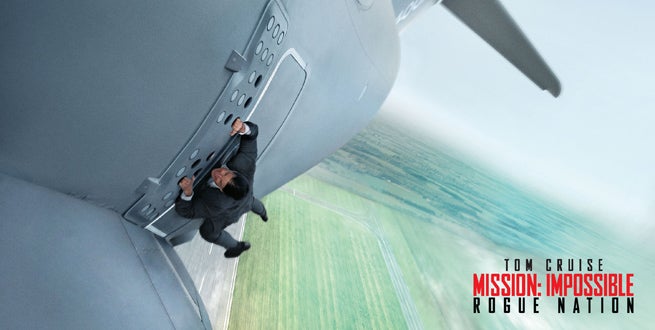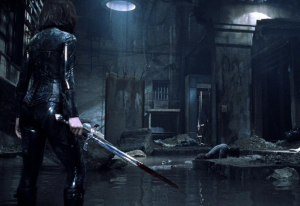When Tom Cruise helped revive the Mission: Impossible franchise as both star and producer, he had one particular stipulation: He wanted a new director, each with their own unique vision, for each film. The producers in this scenario, including Cruise and Bad Robot’s J.J. Abrams, would then be tasked with more creative work than many, working to keep a familiar tone and throughline while also allowing the directors and writers of each to bring their version of Mission: Impossible to life.
Videos by ComicBook.com
For Mission: Impossible – Rogue Nation, Cruise reunited with director Christopher McQuarrie, who has worked with the actor as both a writer and director in the past. Together, the pair set out to make a film that outdid some of their own collaborations.
“It was great. You get to sort of pick and choose what it is you want to bring back from the other stories,” McQuarrie told ComicBook.com during a roundtable interview in New York. “I had done a little work on Ghost Protocol, about midway through the movie, and originally in that script Julie was dead – they had just sort of knocked her off between 3 and 4. I remember reading the script and just going “Gah!” It was like when they killed Newt before Alien 3. The movie started and I was like, “Ah, I hate Alien 3 already and I’m not even into the movie yet!” It felt like all the effort made by the second film was sort of gone.
By bringing her back, we resolved that story and resolved it in a satisfying way, and didn’t need to carry it into or reference it in this movie.”
When developing Rogue Nation, McQuarrie and Cruise really didn’t want to use the Syndicate that was mentioned in Ghost Protocol, he told us, mostly to not be beholden to what had come before.
“We really didn’t want to get into some version of the boogeyman. Then as the movie went on, you felt the presence of this thing without a name, and we finally just said, ‘Ah, it’s the Syndicate, who are we kidding?’”
Indeed, the Syndicate became a part of the movie purely from the development of the story, despite that initial trepidation.
“In our minds, the idea of the Syndicate felt like this uber-evil organization that existed only to be evil. That just wasn’t interesting. Then as I started to realize who Lane was and what he was after, and that he was not acting on his own but with a much larger network, that network needed an identity. I thought, ‘well, that’s what the Syndicate is!’”
Indeed, it changed the development of the central antagonist, Solomon Lane (played by Sean Harris).
“Suddenly this idea of operatives who have decided for whatever reason that their own system was corrupt and turned against it, that shed the idea of it being an explicitly evil organization. It had, in my mind, a methodology and a philosophy. They’re not evil for evil’s sake, and Solomon Lane believes that what he’s doing is good.”
Click here to see how Solomon Lane compares and contrasts to The Joker in The Dark Knight and stay tuned to ComicBook.com for more from McQuarrie on Mission: Impossible – Rogue Nation, now in theaters everywhere.









